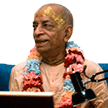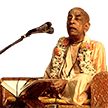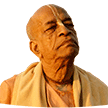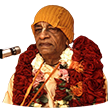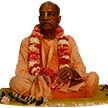Kama - an essential subject: Difference between revisions
Nayanranjani (talk | contribs) (Created page with "Category:Essential Subjects <!----------------------- edit below this line -----------------------> <!------------------------ begin introduction text below ------------...") |
(Vanibot #0041: Moves Choose Another box to the end) |
||
| Line 2: | Line 2: | ||
<!----------------------- edit below this line -----------------------> | <!----------------------- edit below this line -----------------------> | ||
<!------------------------ begin introduction text below ------------------------> | <!------------------------ begin introduction text below ------------------------> | ||
The sanskrit word for lust is 'kama'. Even in this world, people steer away from those who tend to have lusty desires. These desires usually refer to strong attractions to the opposite sex, and when one acts upon such desires impulsively and aggressively, the consequences turn out to be ghastly. Hence it is very wisely stated in the scriptures that for the general peace and harmony of society, one should abolish these lusty desires in one's self and take up spiritual practices as prescribed in the Vedas. | |||
Srila Prabhupada's books, lectures, conversations and letters offer a comprehensive presentation of this essential subject as seen in the Vaniquotes '''[[Vaniquotes:Category:Kama|Kama]]''' category. An introduction from his books is given below in the following | Srila Prabhupada's books, lectures, conversations and letters offer a comprehensive presentation of this essential subject as seen in the Vaniquotes '''[[Vaniquotes:Category:Kama|Kama]]''' category. An introduction from his books is given below in the following 8 quotes. | ||
<!-------- end introduction text and don't touch next three lines ---------> | <!-------- end introduction text and don't touch next three lines ---------> | ||
---- | ---- | ||
== Quotes from Srila Prabhupada's books == | == Quotes from Srila Prabhupada's books == | ||
<!----------------- edit quote boxes below this line -----------------> | <!----------------- edit quote boxes below this line -----------------> | ||
{{VaniQuotebox| | {{VaniQuotebox|Kama (lust) can be utilized to satisfy Krsna, and krodha (anger) can be utilized to punish the demons. When both are used for Krsna's service, they lose their material significance and become spiritually important|Hanumānjī applied his anger in this way. He was a great devotee of Lord Rāmacandra, and he utilized his anger to set fire to the kingdom of Rāvaṇa, a nondevotee demon. Thus kāma (lust) can be utilized to satisfy Kṛṣṇa, and krodha (anger) can be utilized to punish the demons. When both are used for Kṛṣṇa's service, they lose their material significance and become spiritually important. '''(Śrīmad-Bhāgavatam 4.25.24)'''}} | ||
{{VaniQuotebox| | {{VaniQuotebox|A transcendentally situated Vaisnava is not subjected to the influence of the senses by the Lord's material rule of the six kinds of bodily changes (kama, krodha, lobha, moha, mada and matsarya), even when he plays the part of a grhastha|Gṛhasthas (householders) who are under the influence of the external energy accept householder life for the purpose of sense enjoyment, but a transcendentally situated Vaiṣṇava is not subjected to the influence of the senses by the Lord's material rule of the six kinds of bodily changes (kāma, krodha, lobha, moha, mada and mātsarya), even when he plays the part of a gṛhastha. '''(Caitanya-caritāmṛta, Antya-līlā 5.80)'''}} | ||
{{VaniQuotebox| | {{VaniQuotebox|All of these nondevotees are lusty (kami). Because they desire something, they cannot have peace|The devotee of Lord Kṛṣṇa has no desire other than serving Kṛṣṇa. Even so-called liberated people are full of desires. Fruitive actors desire better living accommodations, and jñānīs want to be one with the Supreme. Yogīs desire material opulence, yogic perfections and magic. All of these nondevotees are lusty (kāmī). Because they desire something, they cannot have peace. '''(Caitanya-caritāmṛta, Madhya-līlā 19.149)'''}} | ||
{{VaniQuotebox| | {{VaniQuotebox|Devotional service starts from the point when one is freed from at least two forms of material modes, namely the mode of passion and the mode of ignorance. The result is exhibited by the signs of being freed from kama and lobha|The beginning of devotional service starts from the point when one is freed from at least two forms of material modes, namely the mode of passion and the mode of ignorance. The result is exhibited by the signs of being freed from kāma (lust) and lobha (covetousness). That is to say, one must be freed from the desires for sense satisfaction and avarice for sense gratification. '''(Śrīmad-Bhāgavatam 1.6.21)'''}} | ||
{{VaniQuotebox| | {{VaniQuotebox|The desire to gratify one's own senses is kama (lust), but the desire to please the senses of Lord Krsna is prema (love)|The desire to gratify one's own senses is kāma (lust), but the desire to please the senses of Lord Kṛṣṇa is prema (love). '''(Caitanya-caritāmṛta, Ādi-līlā 4.165)'''}} | ||
{{VaniQuotebox| | {{VaniQuotebox|The Lord is known as apta-kama, or one who can fulfill His desires by Himself. He does not require anyone's help to satisfy His desires|The Lord is known as āpta-kāma, or one who can fulfill His desires by Himself. He does not require anyone's help to satisfy His desires. The Lord is unlimited, and therefore His desires are also unlimited. All living entities but the Lord are limited in every respect; how then can the limited satisfy the desires of the unlimited? The conclusion is that the Absolute Personality of Godhead has neither lust nor anger, and even if there is sometimes a show of lust and anger by the Absolute, it should be considered an absolute benediction. '''(Śrīmad-Bhāgavatam 2.7.7)'''}} | ||
{{VaniQuotebox| | {{VaniQuotebox|Thoughts of becoming one with the Lord, or being merged in the brahma-jyotir, can also be exhibitions of kama spirit if they are desires for one's own satisfaction to be free from the material miseries|Thoughts of becoming one with the Lord, or being merged in the brahma-jyotir, can also be exhibitions of kāma spirit if they are desires for one's own satisfaction to be free from the material miseries. A pure devotee does not want liberation so that he may be relieved from the miseries of life. Even without so-called liberation, a pure devotee is aspirant for the satisfaction of the Lord. '''(Śrīmad-Bhāgavatam 2.3.10)'''}} | ||
{{VaniQuotebox| | {{VaniQuotebox|The mind is always accompanied by six enemies - namely, kama, krodha, mada, moha, matsarya and bhaya - that is, lust, anger, intoxication, illusion, envy and fear|The mind is always accompanied by six enemies—namely, kāma, krodha, mada, moha, mātsarya and bhaya—that is, lust, anger, intoxication, illusion, envy and fear. Although the mind may be merged in spiritual consciousness, one should always be very careful in dealing with it, just as one is careful in dealing with a snake. '''(Caitanya-caritāmṛta, Madhya-līlā 11.10)'''}} | ||
<!----------------- edit quote boxes above this line -----------------> | <!----------------- edit quote boxes above this line -----------------> | ||
| Line 31: | Line 31: | ||
'''Kama - [[Vaniquotes:Category:Kama|explore more within this category]]'''. | '''Kama - [[Vaniquotes:Category:Kama|explore more within this category]]'''. | ||
{{EsentialSubjectTotal}} | {{EsentialSubjectTotal}} | ||
<div style="float:left;"> | |||
{{EssentialSubjectnav}} | |||
</div> | |||
__NOTOC__ | __NOTOC__ | ||
__NOEDITSECTION__ | __NOEDITSECTION__ | ||
Latest revision as of 16:38, 22 November 2020
The sanskrit word for lust is 'kama'. Even in this world, people steer away from those who tend to have lusty desires. These desires usually refer to strong attractions to the opposite sex, and when one acts upon such desires impulsively and aggressively, the consequences turn out to be ghastly. Hence it is very wisely stated in the scriptures that for the general peace and harmony of society, one should abolish these lusty desires in one's self and take up spiritual practices as prescribed in the Vedas.
Srila Prabhupada's books, lectures, conversations and letters offer a comprehensive presentation of this essential subject as seen in the Vaniquotes Kama category. An introduction from his books is given below in the following 8 quotes.
Quotes from Srila Prabhupada's books
Kama - explore more within this category.
Vanipedia has now over 903 introductory articles compiled from Srila Prabhupada's books under the series titled Essential Subjects. All these articles can be seen in the Table of Content on the right side of this article and also here in this Umbrella Category. Browse through them to relish the breadth and depth of Srila Prabhupada's teachings - There is a subject for everyone.
